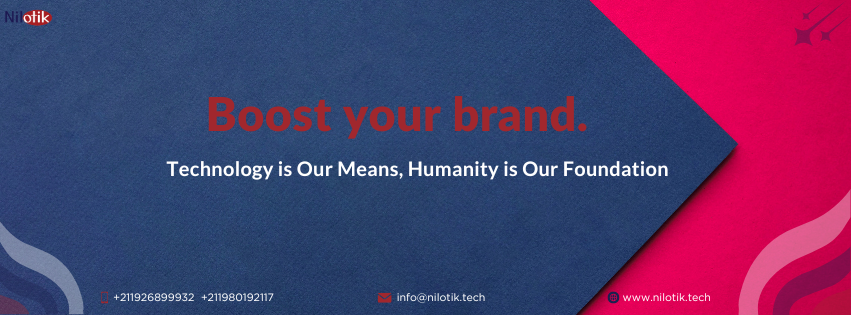How Technology Can Improve Taxation and Revenue Collection in South Sudan
Effective taxation is a cornerstone of any thriving economy. For South Sudan, improving tax collection systems can enhance government revenue, reduce corruption, and fund essential services like education, healthcare, and infrastructure.

Nobel K Wani
Founder, CEO
Nobel K Wani
Founder, CEOSpread the Word
Effective taxation is a cornerstone of any thriving economy. For South Sudan, improving tax collection systems can enhance government revenue, reduce corruption, and fund essential services like education, healthcare, and infrastructure. Technology offers practical solutions to streamline and modernize the taxation process. Here's how:
1. Digital Tax Systems for Transparency
Manual tax systems are prone to inefficiencies, delays, and corruption. By digitizing tax processes, South Sudan can ensure greater transparency and accountability. Digital platforms can allow taxpayers to register, file, and pay taxes online, reducing human interference and potential fraud.
- Example: Rwanda introduced a digital revenue collection system that significantly reduced tax evasion and increased compliance. South Sudan could replicate this approach by developing a simple online tax portal.
2. Mobile Payment Integration
In a country where mobile phone usage is growing, mobile payment systems can revolutionize tax collection. Citizens and businesses can pay taxes using mobile money, eliminating the need to travel to tax offices and making the process more convenient.
- Benefits:
- Faster transactions
- Wider reach, even in rural areas
- Reduced cost of tax collection
3. Data Analytics for Improved Compliance
Technology can help track economic activity and identify potential taxpayers who are currently outside the formal system. With data analytics, the government can better understand economic trends, monitor tax compliance, and close revenue gaps.
- Example: Advanced analytics tools can flag inconsistencies in declared income versus visible wealth, encouraging voluntary compliance.
4. Digital Records to Minimize Errors
Paper-based systems are often slow and prone to errors. Digitizing records ensures accurate tracking of taxpayer data, payments, and arrears. This reduces disputes and speeds up the process of issuing compliance certificates or refunds.
- Impact: Greater efficiency builds trust in the system, encouraging more businesses and individuals to comply.
5. E-Tax Education and Awareness
Technology can also make it easier to educate citizens about their tax obligations. Government websites, social media, and mobile apps can provide simple guides, FAQs, and tutorials to help taxpayers understand how and why they should pay taxes.
- Example: Kenya uses SMS campaigns to remind taxpayers of deadlines and provide step-by-step payment instructions.
6. Reduced Cost of Administration
By automating processes, the cost of administering taxes can be significantly reduced. Digital systems minimize the need for extensive manpower and resources while ensuring faster, more reliable services.
7. Combating Corruption
Corruption is a major barrier to efficient tax collection. Automated systems reduce the need for face-to-face interactions between taxpayers and officials, cutting opportunities for bribery or mismanagement.
8. Enabling Local Revenue Collection
Technology can empower local governments to collect taxes efficiently for community projects. Mobile tools or apps can be used for collecting market fees, business licenses, and property taxes, directly benefiting local development.
A Practical Path Forward
For South Sudan to implement these changes:
- Invest in Infrastructure: Develop reliable internet and mobile networks.
- Partner with Experts: Collaborate with organizations and countries experienced in digital tax systems.
- Start Small: Pilot programs in urban areas before scaling to the entire country.
By embracing technology, South Sudan can create a fairer, more efficient tax system that supports economic growth and strengthens public services.


